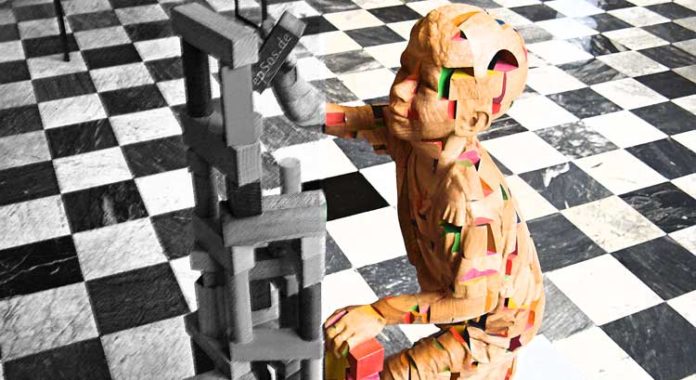
Written by Sophie McAdam at trueactivist.com
An old classic: Ken Robinson gives one of the most popular TED talks ever. If you haven’t seen it yet, now is the time!
Is it a coincidence that pretty much all children love to write stories, have fantastic imaginations, enjoy getting messy, painting, making music, inventing characters, acting out plays, drawing and making things? Why don’t we carry this natural capacity throughout adulthood? Why would nature intend us to lose these gifts?
Eight years ago, a man named Ken Robinson made a TED speech that revolutionized the topic of education. It caused many parents to pull their kids out of school, it was a matter of hot debate among experts, and it has been watched on the TED website over 31 million times to date (not including over 7 million more times on YouTube). Many of you may be familiar with this lecture, but for those who aren’t, we highly recommend you take the next twenty minutes to sit down and listen to what this man has to say.
Robinson is an expert on creativity and education, and he strongly believes that at the moment, the two concepts don’t seem to co-exist. In this speech, Robinson argues eloquently and passionately that education is destroying our childrens’ capacity to think outside the box. Ken Robinson led the British government’s 1998 advisory committee on creative and cultural education, an inquiry into the significance of creativity in the educational system and the economy, and he was knighted in 2003 for his achievements.
There were no public systems of education before the 19th Century; all of them came into being to meet the needs of the Industrial Revolution. “At school, you were probably steered away from subjects you enjoyed because ‘you would never get a job doing that’,” Robinson points out. “Many creative, brilliant, talented people think they’re not, because everything they were good at atschool wasn’t valued, or was stigmatized.”
“All children have tremendous talent and we squander them pretty ruthlessly,” he goes on to say. “Picasso once said that all children are born artists. The problem is to remain an artist as we grow up. I believe passionately that we don’t grow into creativity, we grow out of it. We are educated out of it.”
Robinson argues that society also has a very limited definition of intelligence; a definition that looks to numeracy and literacy only, and stigmatizes children who cannot read and write fluently (but may excel at other subjects) as ‘not very bright’. But is that fair, or true?
“If you visited Earth as an alien, I think you’d have to conclude that the whole purpose of public education throughout the world is to produce university professors,” Robinson says. “They’re the people who come out on top. Our education system is predicated on the idea of academic ability.”
In short, we’ve been educated to become good workers, rather than creative thinkers. We teach children to be part of the system governing our society- uniformed, respectful of authority, scared of making mistakes. “If you’re not prepared to be wrong, you’ll never come up with anything original,” Robinson points out. “Kids aren’t afraid to make mistakes. If they don’t know, they’ll take a chance. But by the time they become adults most kids have lost that capacity. They have become frightened of being wrong. We run our companies this way. And we’re now running national education systems where mistakes are the worst thing you can make.”
His opinions are not an attack on teachers or schools (who I’m sure we all agree, do a fantastic job within the boundaries of the curriculum they must follow)- they refer instead to the whole system of education, throughout the world. As Robinson points out, “Every education system on earth has the same hierarchy of subjects. At the top are mathematics and languages, then the humanities, and at the bottom are the arts. Why? As children grow up, we start to educate them progressively from the waist up. Then we focus on their heads, and slightly to one side.”
According to Robinson, our education system places so much emphasis on the academic subjects that natural gifts for art, music or acting are often brushed aside as we get older. Restless children may be stigmatized as hyperactive and diagnosed with ADHD. One moving example of this is a story Robinson tells about world-class dancer and choreographer Gillian Lynne (responsible for the success of Cats and Phantom of the Opera), whose mother became increasingly worried when she was a child because she found it impossible to sit still or concentrate in class. After taking her daughter to a specialist in the 1970’s, her mother was told: “Gillian isn’t sick. She’s a dancer. Take her to a dance school.” This was done, and the rest is history. But as Robinson points out, “Someone else might have put her on medication and told her to calm down.”
Please watch, comment and share if you agree we need a paradigm shift in the education system!
This article (This Is How Education Kills Creativity) is free and open source. You have permission to republish this article under a Creative Commons license with attribution to the author and TrueActivist.com.




